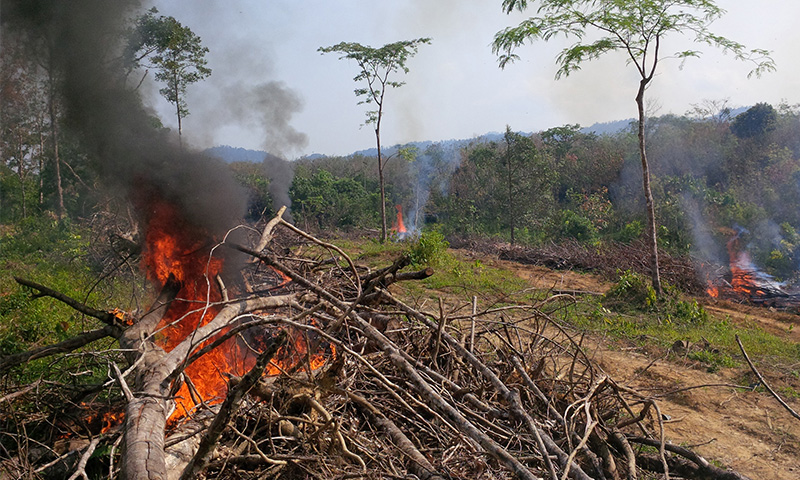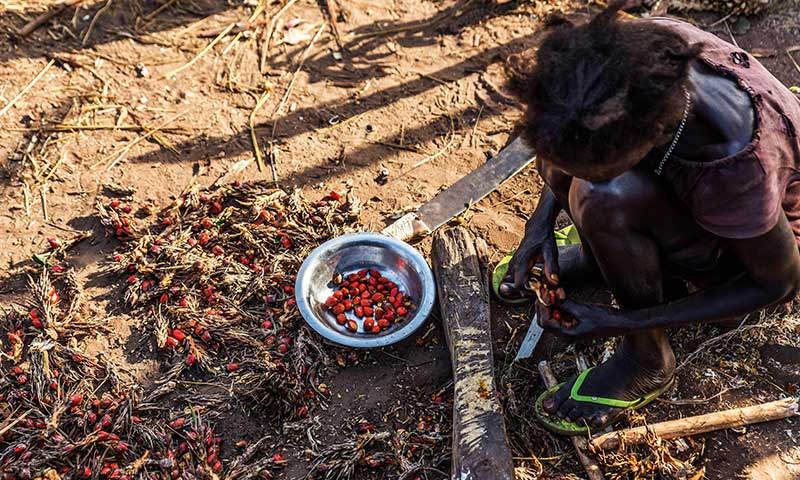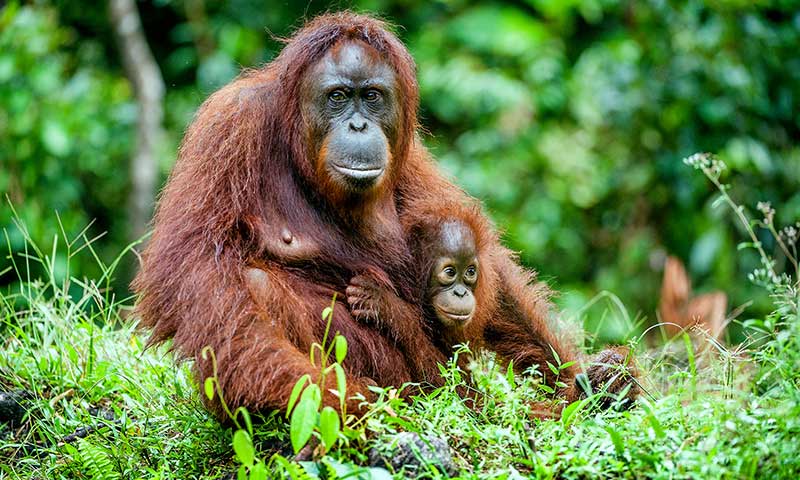WORTH GETTING RIGHT
Palm oil is the most popular vegetable oil in the world, and is an amazingly versatile natural product. However, conventional palm oil production has caused significant environmental destruction and social injustice. That’s why Daabon has dedicated itself to producing palm sustainably, and turning it into a force for good.
“Daabon was the first Certified Organic producer to become RFA certified, complying with our standards that involve environmental, social, and economic issues.”
WHERE IT COMES FROM
Derived from the fruit of the African oil palm tree, which is grown in tropical climates around the globe.
THE INDUSTRY
Palm oil production is worth approximately $70 billion annually, and is expected to grow to $92 billion by 2021.
WHERE IT’S FOUND
Palm oil and its derivatives can be found in over half the products on the shelves in a typical supermarket.
NATURALLY MIGHTY
Yield
Yield in metric tonnes of oil produced per hectare.
Palm oil is a high-yield, versatile agricultural crop that can be produced in an extremely efficient and cost-effective way.
PALM OIL USES
Palm oil and palm oil derivatives are key ingredients in many packaged foods, as well as in cosmetics, soaps, pharmaceutical products, animal feed, and biofuels.
PALM OIL NAMES
Palm oil and its derivatives go by many names, so it’s difficult to identify if a product contains palm oil just by reading the label. But if you look, you’ll start seeing it everywhere.
So what’s the problem?
Unfortunately, the conventional palm oil industry has a poor track record when it comes to environmental impact and social responsibility. The old, “bad” way of producing palm oil gives rise to a host of problems.

DEFORESTATION AND GREENHOUSE GAS EMISSIONS
Deforestation is a massive contributor to climate change, and palm oil cultivation is a primary driver of deforestation globally. Palm oil may be the biggest contributor to climate change that most people have never heard of.

HUMAN RIGHTS
Lax regulation and corruption within sectors of the palm oil industry have historically generated problems such as the displacement of local populations and abusive labor policies.

THREATS TO NATURAL HABITATS AND SPECIES SURVIVAL
Burning tropical forests for the purpose of palm cultivation threatens native species. The danger extends from large animals like forest elephants, tigers, orangutans, and monkeys down to thousands of species of birds, plants and insects.
So how do we fix the industry?
Because palm oil is so useful and can be made so efficiently, it really is a perfect product, provided we all commit to producing it sustainably. But transforming palm oil from part of the problem to part of the solution can only happen if both businesses and everyday people embrace accountability and take action.

Corporations
Simply put, companies who make money from palm oil—whether producing it or using it as an ingredient in their products—need to make an unambiguous, public commitment to sustainable palm oil.
At Daabon, we believe that palm oil can be produced ethically, in a way that gives human beings the benefit of this amazing natural product without damaging the planet.

Consumers
Educating yourself and taking action can help stop deforestation, fight climate change and human rights abuses, and even help save lives.
As a consumer, the most effective way to curb the production of unsustainable palm oil is to consume it ethically.
What we’re doing:
1.
Empowering our farmers and investing in long-term community development with our programs for small farmers and our commitment to fair wages and Fair Trade, learn more.
2.
Setting higher standards for environmental protection: We only plant palms on previously deforested land, never clearing forestland or planting on peat, we take care to protect natural conservation areas for animals to live in, and we maintain a zero carbon footprint.
What we’re doing:
1.
Seek out products with sustainable palm oil when shopping, and only buy products that have the CSPO seal
2.
Reach out to companies and brands who have not made the switch to Certified Sustainable Palm Oil, and don’t buy their products until they do.
Make a difference by learning more
If you’d like to learn more about palm oil or discover palm oil facts,
here are some resources.



